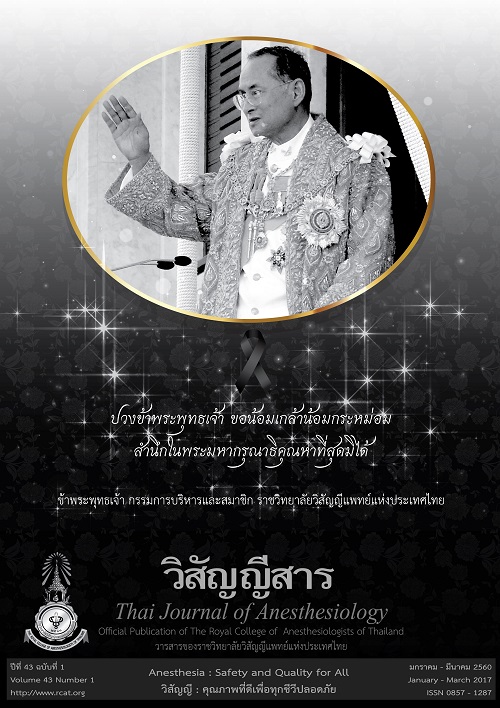Unanticipated problems in a patient with acute amphetamine abuse undergoing general anesthesia
Main Article Content
Abstract
Background: Amphetamine affects the central nervous system and cardiovascular system.
Therefore, the risk of complications during anesthesia.
Objective: To report problems during general anesthesia in a patient with acute amphetamine
abuse and review literature.
Method: Medical chart, anesthetic record and investigations of patient were reviewed.
Results: A 24-year-old woman was admitted with colon cancer and was scheduled for subtotal
colectomy under general anesthesia. During the operation, she had hypertension and tachycardia. Increased depth of anesthesia, decreased blood pressure with antihypertensive drugs and hydrated intravascular fluid were done. Blood pressure returned to normal range, with the exception of persistent tachycardia of 120-150 bpm. Heart rate returned to normal range at the end of operation then patient was taken to ward. She had severe pain, hypertension and tachycardia. After the operation, she was diagnosed intra-abdominal bleeding. Reoperation for stop bleeding was done and 1500 ml of blood clot was found. Blood pressure was stable, heart rate about 120 bpm. At the end of operation, she woke up fully
but she had hypertension and tachycardia. She was referred to tertiary care and her urine amphetamine was positive, then vital signs returned to normal.
Conclusion: Amphetamine causes hypertension and tachycardia during general anesthesia which can lead to increase morbidity and mortality during general anesthesia. Therefore, preoperative anesthetic preparation, intraoperative and postanesthetic management are important for the safety of patients.


